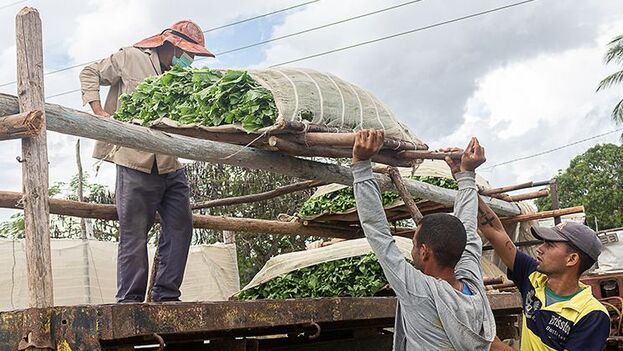
14ymedio, Havana, 14 October 2023 — The official press warned this Saturday that the bancarización* banking reform process in Pinar del Río has found its nemesis: the Cuban guajiro. “They have no culture of that,” complained the authorities, who insist that the farmers – particularly those dedicated to tobacco cultivation – are impervious to the “change of mentality” that the measure entails.
Beyond the resistance of the guajiros to electronic transactions and payments, the Guerrillero newspaper admits that the essence of the problem is that not everyone has a mobile phone. The connection in rural areas is terrible, and the fact that not all workers have bank accounts makes it difficult to exchange digital money.
Niurka Rodríguez, deputy governor of Pinar del Río, complained that she has been trying for more than two years to convince cooperative members to “migrate” to digital with the use of paid applications. “We started with Xetid and EnZona; then we used Transfermóvil,” she said. There was no success. Not even market administrators – there are 16 in the province – made the “effort” to incorporate electronic payment into their daily lives.
According to the authorities, nothing justifies the lack of bancarización in Pinar del Río. There are 15,000 bank accounts in the province, “markets that have conditions” and officials willing to explain how the process works. But, simply, “even with all this, they haven’t implemented it.”
The tension is at its highest, energized by the fact that “the workforce in the field is scarce,” argues Blanco
The guajiros continue to demand their payments in cash and prefer “money in the hand,” as they say. “If there is no money, they won’t work,” explains Armando Blanco, a state tobacco administrator from Consolación del Sur. “I have a phone, and for me it would be a convenience to be able to pay the men out there without having to go to the bank, but they don’t like it. They ask for cash, because from here to their house they buy a bag of b


